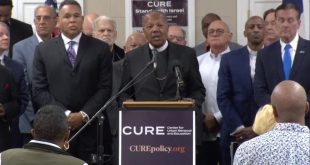In Texas, a private citizen may file a civil lawsuit against an abortion provider or anyone who “aids or abets the performance or inducement of abortion” if an abortionist has detected the baby’s heartbeat during an ultrasound. Aiding and abetting includes paying for or reimbursing the costs of killing an unborn baby through insurance.
Abortion advocates fought the law that Governor Greg Abbott signed last May. They claim that the measure conflicts with Roe v. Wade’s viability standard for killing babies. But the U.S. Supreme Court declined to act on an emergency request to block it. A lower court temporarily blocked it, but the U.S. Court of Appeals for the Fifth Circuit temporarily reinstated it.
The Biden administration jumped on the death wagon and filed a lawsuit, but a three-judge panel of the Fifth Circuit denied the request.
The plaintiffs in the case, Whole Woman’s Health, which kills unborn babies, asked the court to declare that the law restricts their rights and to block it. The defendants, which include the Texas Medical Board, the Texas Board of Nursing, the executive director of the Texas Board of Pharmacy, and the executive commissioner of the Texas Health and Human Services Commission, argued that they had sovereign immunity and lack standing in the lawsuit and sought to dismiss the case.
The Texas Supreme Court last Friday issued a ruling (PDF) in the case — agreeing with the defendants:
“We address in this case a certified question from the United States Court of Appeals for the Fifth Circuit, asking whether Texas law authorizes certain state officials to directly or indirectly enforce the state’s new abortion-restriction requirements. We conclude it does not.”
The Texas legislature wrote the law as a right of action for private citizens, not state officials.
“Senate Bill 8 provides that its requirements may be enforced by a private civil action, that no state official may bring or participate as a party in any such action, that such an action is the exclusive means to enforce the requirements, and that these restrictions apply notwithstanding any other law.”
Do you like this post? Sign up for more!
 CURE News and Clergy Blog News and Commentary for Christians
CURE News and Clergy Blog News and Commentary for Christians



